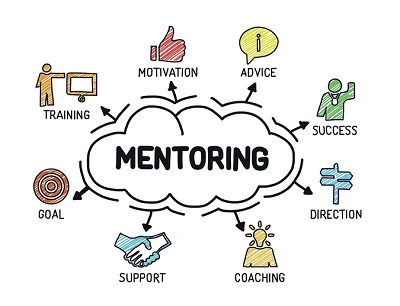The Importance of Networking and Mentorship for Small Business Owners
Why Networking Matters
In today’s dynamic business landscape, networking is not just a peripheral element—it’s an integral pillar for the success of small business owners. Building a robust professional network enables business owners to tap into a rich pool of resources, including industry insights, strategic partnerships, and potential clientele. By engaging with other entrepreneurs and industry experts, small business owners can gain invaluable perspectives that fuel innovation and efficiency within their operations. This connectivity fosters an ecosystem of shared experiences and collaborative growth.
Consider the scenario of a small business navigating market challenges; insights from a well-connected industry peer can offer solutions that might be otherwise inaccessible. Furthermore, networking extends your visibility and credibility in your domain, making your business more attractive to investors and customers alike.
For instance, a Forbes article emphasizes the importance of networking in opening new doors and creating opportunities that might not otherwise have been realized. Learn more about the impact of effective networking.

The Role of Mentorship in Business Success
Mentorship plays a pivotal role in the journey of small business owners, providing guidance that can significantly enhance business success. A mentor offers a wealth of experience, helping to navigate the challenges and uncertainties that often accompany entrepreneurial endeavors. Through active mentorship, business owners can receive tailored advice on strategy development, leadership, and market positioning.
Successful mentors can identify strengths and weaknesses, providing constructive feedback that fosters professional growth. The unique interplay between a mentor’s experiences and a mentee’s ambitions creates a powerful dynamic, paving the way toward long-term success.
Moreover, engaging with a mentor can potentially expand a business owner’s network exponentially, granting access to a broader scope of professionals within the industry. This symbiotic relationship ultimately leads to personal growth, enriched leadership skills, and a more resilient business model.
By understanding and leveraging the importance of both networking and mentorship, small business owners can create a well-rounded foundation for sustained growth and success. These elements are not just supplementary but essential components that drive innovation and resilience in the competitive business world.

Key Strategies for Effective Networking
Building Your Professional Network
Establishing a robust professional network is pivotal for small business success. Entrepreneurs need to consistently engage with peers, industry leaders, and potential partners to create lasting and fruitful relationships. Start by identifying key stakeholders in your industry and attending relevant industry events. These gatherings present a unique opportunity to connect with thought leaders and gain valuable insights.
Consider joining business associations and chambers of commerce, which often host networking events and provide platforms for collaboration. Regular participation in such settings not only expands your business contacts but also enhances your visibility within the industry.
Remember, networking is a two-way street. Offer your expertise and resources to others, fostering a reciprocal relationship that encourages growth and learning. This mutual exchange of knowledge and support creates a dynamic network, where professionals feel valued and respected.

Utilizing Social Media for Networking
In today’s digital age, social media is an indispensable tool for networking. Platforms such as LinkedIn, Twitter, and Facebook provide an ideal environment for connecting with professionals beyond geographical boundaries. Optimize your profiles by clearly stating your expertise, business achievements, and professional goals. This will make it easier for like-minded individuals and potential collaborators to find and connect with you.
Engage in meaningful conversations by joining relevant groups and forums. Participate in discussions, share insightful content, and comment on posts to demonstrate your expertise and increase your visibility. A study by LinkedIn found that consistent engagement on its platform can significantly elevate a professional’s network reach and credibility.
Moreover, leverage social media tools such as direct messaging and video conferencing to maintain personal interactions. These features allow you to nurture relationships in a more personalized manner, despite the digital landscape.
Incorporating these strategies into your networking endeavors will undoubtedly help build a powerful, influential network that drives your small business towards success.

Finding the Right Mentor
Identifying a good mentor can be transformative for a small business owner. A mentor provides guidance, shares valuable experiences, and helps navigate challenges. Here’s what you need to know about finding the right mentor for your small business success.
Qualities of a Good Mentor
A good mentor possesses several distinct qualities that set them apart. Firstly, they have relevant experience and a track record of success in your industry. This experience provides practical insights that are immensely beneficial. A mentor should also exhibit effective communication skills, ensuring that their advice is clear and actionable. Empathy and the ability to listen are equally vital, as they foster a supportive relationship where you feel understood and encouraged.
Moreover, a strong sense of integrity and willingness to share knowledge candidly can help build trust. A good mentor is someone who challenges you and inspires growth, pushing you out of your comfort zone while maintaining a supportive and respectful environment. Look for mentors who are genuinely interested in your progress and are proactive in offering insights and resources.
Where to Find Mentors
Finding the right mentor requires strategic effort and openness to new connections. Start by exploring professional networks and industry-specific groups. Networking events, conferences, and workshops are excellent places to meet potential mentors. Engage in conversations and express your desire to learn and grow.
Online platforms like LinkedIn offer a vast landscape of potential mentors. By joining groups related to your field and participating in discussions, you increase your visibility to seasoned professionals willing to offer mentorship. Social media platforms can be leveraged to connect with industry leaders or find mentorship opportunities through various initiatives and announcements.
Don’t overlook the value of formal mentorship programs. Many industry associations and business development organizations offer structured programs designed to connect mentors with entrepreneurs. Participating in such programs can lead to long-lasting, beneficial relationships.
Finally, explore local business communities. Chamber of commerce meetings, networking clubs, and alumni associations often connect you with individuals eager to assist emerging entrepreneurs.
As you navigate the path to finding a mentor, remember, the key is to seek someone whose values align with yours and who sees potential in your vision. For more strategies on finding the right mentor, refer to this helpful guide on mentorship.

Maintaining Valuable Professional Relationships
Effective Communication with Your Network
Cultivating valuable professional relationships hinges significantly on maintaining effective communication within your network. For small business owners, a robust communication strategy can translate to substantial growth opportunities and long-term success. Regularly staying in touch with your network allows you to exchange ideas, share insights, and remain updated on industry trends. This is not just about keeping your connections informed but engaging them with relevant content that adds value to their knowledge base.
Leveraging modern communication tools can enhance your networking effectiveness. Use platforms like LinkedIn to post insightful articles, participate in discussions, and acknowledge your contacts’ achievements. Establishing a regular newsletter can also serve as a valuable tool to keep your network informed about your business progress and industry advancements. For best results, be consistent and authentic in your communications, and always focus on listening as much as you talk.
Remember, networking is a two-way street. When asking for advice or assistance, be willing to reciprocate. Being generous in offering support and acknowledging others’ successes can significantly boost your reputation within your network source.
Nurturing Your Mentor-Mentee Relationship
A mentor-mentee relationship is a cornerstone for many entrepreneurs striving towards success. Nurturing a mentor-mentee relationship not only facilitates personal and professional growth but ensures that you derive maximum benefit from mentorship. Regular check-ins are essential to keep the relationship productive. Establishing clear goals and expectations from the onset can set the tone for meaningful interactions and long-term outcomes.
Active listening and openness to feedback are critical components on the part of the mentee. Show appreciation for your mentor’s time, experience, and knowledge. Craft specific, pertinent questions that drive insightful dialogue and demonstrate your commitment to learning and growth. Always follow through on advice and report back on outcomes. This iterative feedback loop strengthens the mentor-mentee bond by validating the mentor’s role and base of experience.
On the flip side, be open to offering your insights and experiences as they relate to your industry—mentorship is often reciprocal. Respect, trust, and accountability are foundations upon which a fruitful mentorship is built. Establishing these dynamics early on can lead to substantial benefits for both the mentor and the mentee, resulting in a relationship characterized by mutual growth and success. Effective navigation through this pivotal relationship largely determines the extent of insight and value derived, significantly impacting your small business trajectory.
Conclusion
Recap of the Importance of Networking and Mentorship
In the dynamic landscape of small business, networking and mentorship stand as twin pillars supporting the bridge to success. Throughout your entrepreneurial journey, these elements are invaluable not only for growth and sustainability but also for innovation and competitive advantage. By weaving a strong professional network, small business owners can access a wealth of resources, from diverse insights to potential partnerships, which are crucial for navigating market fluctuations and seizing opportunities. Network connections often open doors to collaborative possibilities and new markets that might otherwise remain inaccessible.
Meanwhile, the guidance and wisdom offered through mentorship can significantly accelerate business maturity and enhance decision-making capabilities. A good mentor provides not only insights drawn from experience but also challenges you to see your business landscape from different perspectives, fostering adaptability and resilience. Engaging with a mentor can also foster accountability and encourage goal-setting, both essential for achieving sustainable growth.
Building and maintaining these vital professional relationships involves strategic efforts in effective communication, leveraging social media, and continuous engagement. As you nurture these connections, remember the true essence of both networking and mentorship: a mutual exchange of value, knowledge, and support. By prioritizing these strategies, you can foster a robust business environment conducive to success and longevity.
For more in-depth insights and strategies on how networking and mentorship can propel your business forward, consider exploring reputable resources such as Entrepreneur.

